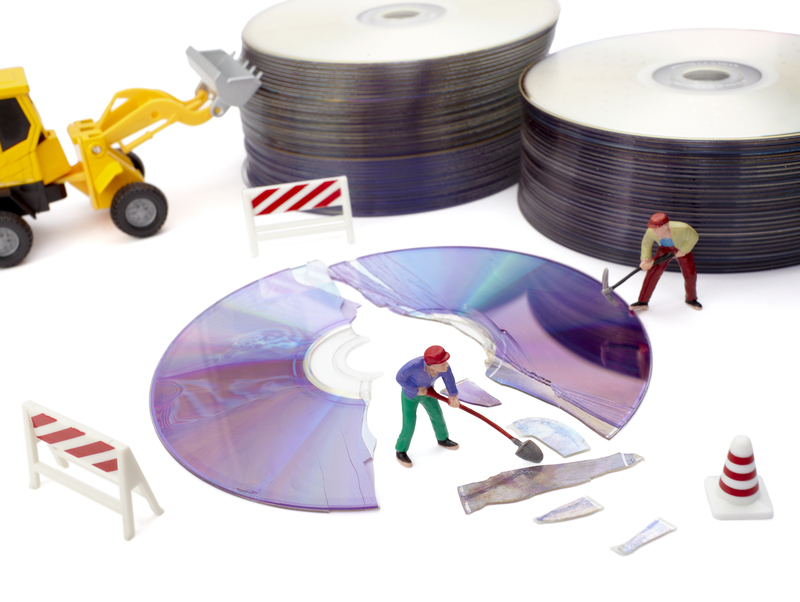Save More with These Game-Changing Bulky Waste Disposal Tips
Bulky waste disposal is often a source of stress and unexpected expenses for homeowners, renters, and even businesses. Items such as sofas, mattresses, old appliances, and garden waste can accumulate quickly, making it difficult to keep your space tidy and compliant with local regulations. However, with the right strategies, disposing of large waste items doesn't have to break the bank. Discover comprehensive, actionable tips to transform the way you deal with bulky trash and learn how to save money, time, and effort in the process.

Understanding Bulky Waste: What Is It And Why Is Proper Disposal Important?
Before exploring game-changing disposal tips, it's crucial to understand exactly what bulky waste refers to. Generally, bulky household waste includes large items unsuitable for regular trash or recycling bins. Common examples are:
- Furniture (sofas, beds, wardrobes, dining tables, chairs)
- Large electronic appliances (fridges, washing machines, TVs, microwaves)
- Garden waste (tree branches, old fences, large pots)
- Mattresses and box springs
- Renovation debris (doors, windows, bathtubs)
Improper disposal of bulky rubbish can result in hefty fines, environmental hazards, and unsightly neighborhoods. Responsible, cost-efficient removal is not just eco-friendly; it's also essential for community wellbeing.
Top Reasons to Optimize Your Bulky Waste Disposal
- Save money on collection fees and avoid fines
- Protect the environment by diverting items from landfills
- Help charities and community groups by donating usable goods
- Make your home or business more inviting and safe
- Free up valuable space
Game-Changing Bulky Waste Disposal Tips to Save More
1. Plan Ahead and Schedule Properly
Bulk trash collection, whether private or municipal, often operates on a set schedule. Check your local council's website or call your service provider for collection days and regulations. Planning ahead helps you:
- Avoid rushed, expensive private collections
- Prevent unwanted fines from dumping on the wrong dates or times
- Organize waste to maximize collection volumes
Tip: Consolidate and group multiple items per collection to make fewer, larger bookings instead of several smaller (and costly) pickups.
2. Repurpose, Reuse, and Donate Bulky Items
Giving your bulky rubbish a second life is both eco-friendly and cost-efficient. Instead of throwing away furniture or appliances, consider:
- Selling lightly used items on online marketplaces (like Facebook Marketplace, Gumtree, eBay, Craigslist)
- Donating to local charities or thrift stores - many offer free pickups
- Repurposing parts for DIY home or garden projects
- Offering goods for free via community boards or social media groups
Some reputable organizations and charities specialize in collecting bulky donations, such as the Salvation Army, local homeless shelters, and furnishing projects. Confirm their requirements online to ensure your items qualify.
3. Master the Art of Bulky Waste Sorting
Sorting your waste can save time and money. Most bulky rubbish is made up of different materials - wood, metal, fabric, plastic, or electronics. Facilities may charge per material type or refuse mixtures. Separate items into:
- Metals (appliances, bed frames, fixtures)
- Wood (furniture, shelving, garden waste)
- Textiles (mattresses, sofas, carpet)
- Electronics (TVs, computers, fridges)
- General debris (old toys, plastics, broken items)
Well-sorted waste is easier and cheaper to process--and many centers accept sorted items for free or at reduced rates.
4. Leverage Your Local Council's Bulky Waste Collection Service
Many municipalities (and even some private neighborhoods) provide free or subsidized bulk waste pickups. However, spaces are often limited and must be reserved ahead of time.
- Check your council's website for eligibility, costs, and schedules
- Some councils offer annual "hard waste" collection events where households can put out unlimited items
- Book well in advance, especially during spring cleaning or city-wide events
Maximize your savings by waiting for these no-cost or flat-fee opportunities.
5. Share Disposal Costs with Neighbors
If private collection is your only option, consider organizing a group pickup:
- Reach out to neighbors, friends, or nearby businesses
- Pool your bulky items to take advantage of volume discounts
- Schedule a shared skip or van--splitting costs can save everyone money
This approach reduces your financial burden and makes the massive job of moving bulky waste faster and easier.
6. Hire the Right Rubbish Removal Service
There are dozens of bulky waste removal companies operating in most cities. When booking with a private provider, consider:
- Getting multiple quotes and comparing pricing structures
- Asking about weight or volume-based fees
- Inquiring about eco-friendly disposal: some companies prioritize recycling or donations
- Reading recent reviews for reliability and value
- Negotiate if you have unusually large loads or combined neighbors' rubbish
Always choose licensed and insured professionals to avoid liability or fly-tipping penalties.
7. Use Local Recycling Centres and Drop-Off Points
Many community recycling centers accept bulky items for free or low-cost disposal. Examples include:
- Council "tip" sites or transfer stations
- Buy-back or resource recovery centers (which often take furniture, wood, metals, and electronics)
- Special e-waste disposal events for computers, TVs, and batteries
Always check opening hours and what's accepted before loading your car or trailer.
8. Dismantle and Downsize Where Possible
By breaking down large items into smaller parts, you can often:
- Make items easier and cheaper to transport
- Fit more into collection bins or vehicles
- Separate materials for recycling or donation
- Avoid extra surcharges for oversized goods
Use basic tools to take apart beds, tables, and appliances. Remove hazardous materials (like fridge coolant or batteries) beforehand.
9. Consider Eco-Friendly Disposal Options
Sustainable disposal helps the environment and can sometimes save you money. Look for:
- Specialized recyclers (for mattresses, white goods, or solar panels)
- Manufacturers' take-back programs (e.g. appliance retailers sometimes remove old goods for free with delivery)
- Composting services for green garden waste
- Upcycling workshops or artists who use scrap materials
Before tossing anything in the landfill, ask if someone can use, refurbish, or recycle it--often, the answer is yes!
10. Avoid Illegal Dumping at All Costs
While it may seem tempting to leave items on the curb or dump them in a vacant lot, illegal dumping brings huge risks:
- Heavy fines (some cities charge thousands per offence)
- Damage to your reputation and neighborhood
- Environmental harm from toxins and debris
Always follow local laws and use legitimate collection or recycling services. Illegal dumping is far more expensive in the long run.
Expert Bulky Waste Disposal Hacks for Businesses & Large Households
If you're managing bulky rubbish from a business, rental property, or large family home, try these specialized tips:
- Conduct a regular "waste audit" to identify patterns, reduce unnecessary bulk, and forecast future disposal needs.
- Negotiate long-term rates or package deals with local hauliers.
- Install signage and provide guidance for tenants or staff to minimize contamination and illegal dumping.
- Invest in heavy-duty shelving or storage solutions to safely stockpile bulky items between collections.
- Engage with local zero-waste initiatives or business networks to share resources, tools, and disposal contacts.

Bonus Tip: Stay Updated on Local Laws & Recycling Opportunities
Bulky waste disposal rules and recycling programs often change. Stay updated on:
- What items are accepted for curbside or council pickup
- Banned or restricted items (e.g. tyres, chemicals, e-waste)
- Costs, rebates, or subsidy changes
- New community recycling schemes or collection programs
Sign up for email reminders from your council or follow social media pages for timely updates.
Conclusion: Take Control--Save Money and the Planet with Smart Bulky Waste Disposal
Bulky waste disposal doesn't have to be expensive or stressful. By combining planning, recycling, donation, group action, and eco-friendly options, you'll reduce costs and impact. When in doubt, contact your local authorities or professional rubbish removal companies for guidance.
- Organize pickups in advance
- Reuse, donate, and recycle whenever possible
- Sort and downsize items for easy handling
- Stay informed on local rules and special offers
Follow these game-changing bulky waste disposal tips and you'll keep your home, wallet, and conscience clear--while making your community a cleaner, greener place for everyone.
Frequently Asked Questions (FAQ)
- What is considered bulky waste? - Bulky waste includes anything too large for regular bins, such as mattresses, sofas, refrigerators, and garden debris.
- How can I dispose of bulky waste for free? - Utilize council hard waste events, charities, and recycling centres. Confirm where and what they accept before dropping off items.
- What are the risks of illegal dumping? - Illegal dumping can result in hefty fines, environmental damage, and even legal action. Always use authorized disposal methods.
- Can businesses get discounts on bulky rubbish removal? - Yes. Many providers offer volume or contract discounts for commercial and multi-family properties. Shop around and negotiate.
Ready to tackle your next big cleanup? Use these expert tips and save more on every bulky waste disposal project!